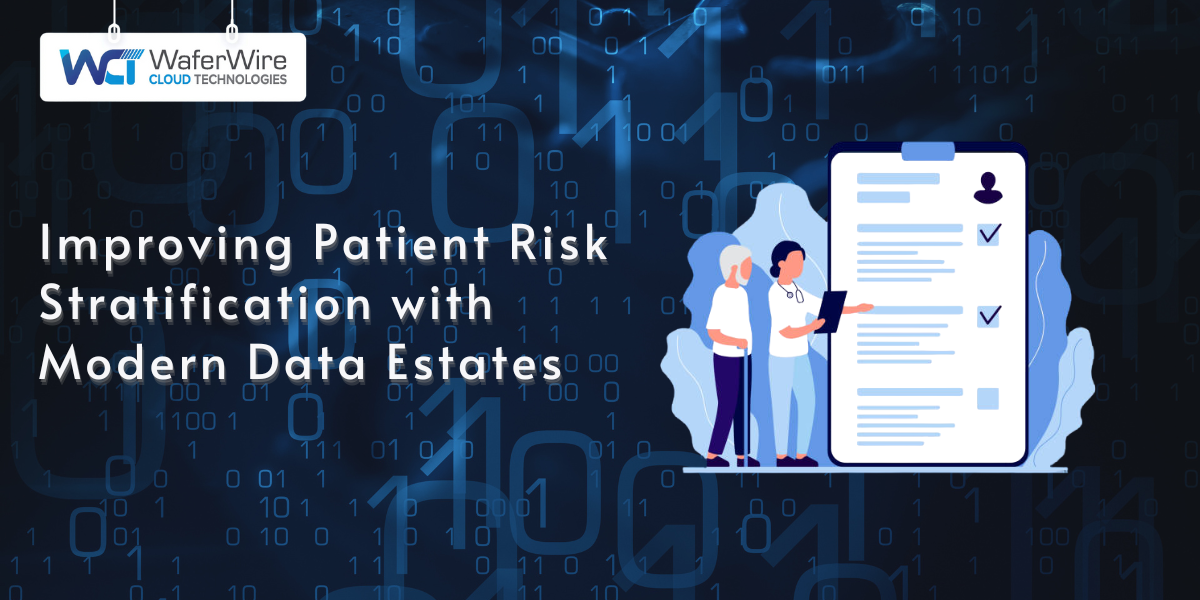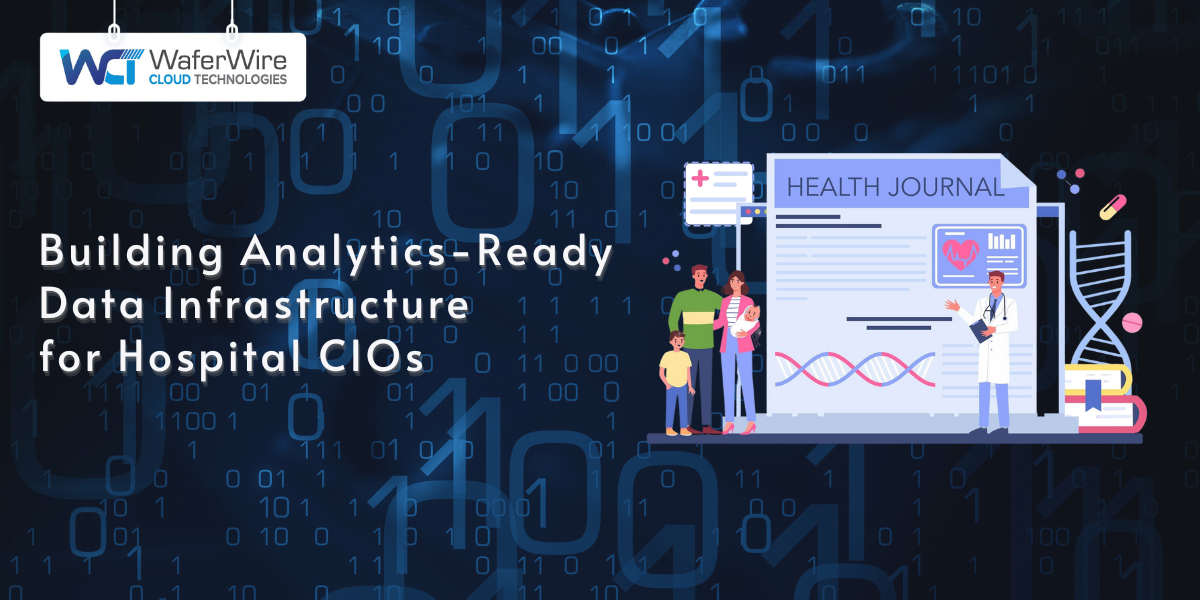
Data Governance and Data Security: What to Know
Mitra P
2025-03-30
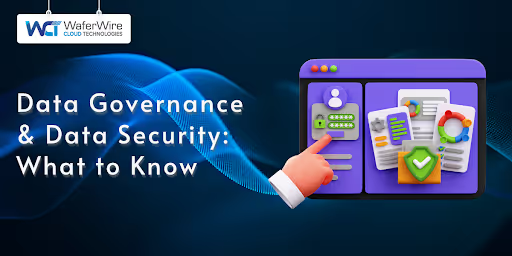
Talk to our cloud experts
Subject tags
Data is the new oil, yet without proper governance and security, it becomes a liability rather than an asset. A Varonis report shows that the average cost of a mega-breach of 50 to 60 million records in 2024 was $375 million, highlighting the urgent need for stronger protections in 2025.
Poor data governance leads to regulatory fines, reputational damage, and operational inefficiencies, while weak security invites cyber threats that can cripple entire businesses. As global data regulations tighten, organizations must strike a balance between accessibility and protection.
This blog explores the critical aspects of data governance and security, offering insights into their importance, best practices, and how businesses can fortify their data strategies.
What is Data Governance and Security?
Data governance and security are essential frameworks that ensure data integrity, compliance, and protection against risks. While data governance focuses on managing data assets effectively, data security safeguards them from unauthorized access and breaches. Both are essential for organizations to manage risks and maintain trust.
Data Governance
Data governance is a comprehensive framework that defines how data is collected, stored, managed, and used within an organization. It includes policies, procedures, and roles to ensure data accuracy, consistency, security, and compliance with industry regulations. Effective data governance enhances operational efficiency and supports informed decision-making.
Here is its importance:
- Maintains data quality and consistency across systems.
- Ensures compliance with legal and regulatory frameworks.
- Enhances decision-making through reliable and structured data.
- Reduces operational inefficiencies and data-related risks.
- Defines clear roles and responsibilities for data management.
Data Security
Data security refers to the strategies and technologies used to protect digital information from unauthorized access, corruption, or theft. It encompasses encryption, access controls, threat detection, and security protocols to safeguard sensitive data from cyber threats, ensuring confidentiality, integrity, and availability.
Here is its importance:
- Prevents unauthorized access and data breaches.
- Protects sensitive information from cyber threats.
- Ensures business continuity by preventing data loss.
- Builds customer trust by safeguarding personal data.
- Helps organizations comply with security regulations and standards.
Ensuring strong data governance and security is a necessity for organizations to maintain compliance, mitigate risks, and safeguard valuable information. To establish a robust framework, it is essential to understand the key components that drive effective data governance and security. In the next section, we will explore these key components.
Key Components of Data Governance and Security
A well-structured data governance and security framework relies on fundamental components. These components define how data is managed, secured, and utilized within an organization. Let’s have a look at them.
Data Governance
Here are the key components of data governance:
- Data Policies and Standards: They define rules and best practices for data usage, storage, and quality control.
- Data Stewardship: It assigns roles and responsibilities to individuals who oversee data management and ensure compliance.
- Metadata Management: It organizes and maintains information about data, such as its source, format, and relationships.
- Data Quality Management: It ensures data accuracy, consistency, and reliability across systems.
- Regulatory Compliance: It aligns data practices with industry regulations and legal requirements.
- Data Governance Committee: A dedicated team that monitors and enforces governance policies.
Data Security
Here are the key components of data security:
- Access Controls: It restricts data access based on user roles and authentication mechanisms.
- Encryption: It protects sensitive data by converting it into unreadable formats for unauthorized users.
- Data Masking and Anonymization: They conceal and modify sensitive information to prevent exposure.
- Threat Detection and Prevention: This identifies and mitigates potential cyber threats in real time.
- Backup and Disaster Recovery: It ensures data availability and restoration in case of loss or system failure.
- Security Audits and Monitoring: These are regular assessments to detect vulnerabilities and strengthen security protocols.
These components will help you build a well-integrated data governance and security framework. Now, let’s understand the key differences between data governance and data security.
Data Governance vs Data Security: Key Differences
While data governance and data security are closely related, they serve distinct purposes in an organization’s data management strategy. Here are their key differences:
AspectData GovernanceData SecurityObjectiveEnsures data consistency, accuracy, and regulatory compliance.Safeguards data from theft, corruption, and unauthorized modifications.Focus AreaData ownership, access control policies, and quality standards.Encryption, firewalls, access controls, and threat detection.Key ComponentsPolicies, data stewardship, metadata management, compliance enforcement.Authentication, encryption, security monitoring, risk mitigation.Regulatory RoleEnsures adherence to data protection laws and industry standards.Implements security protocols to comply with data privacy regulations.ResponsibilityManaged by data governance teams and compliance officers.Overseen by IT security teams and cybersecurity experts.
Both data governance and security are essential for a comprehensive data management strategy, working together to ensure data is both well-managed and well-protected. In the next part, we will explore some of the use cases of data governance.
Use Cases of Data Governance
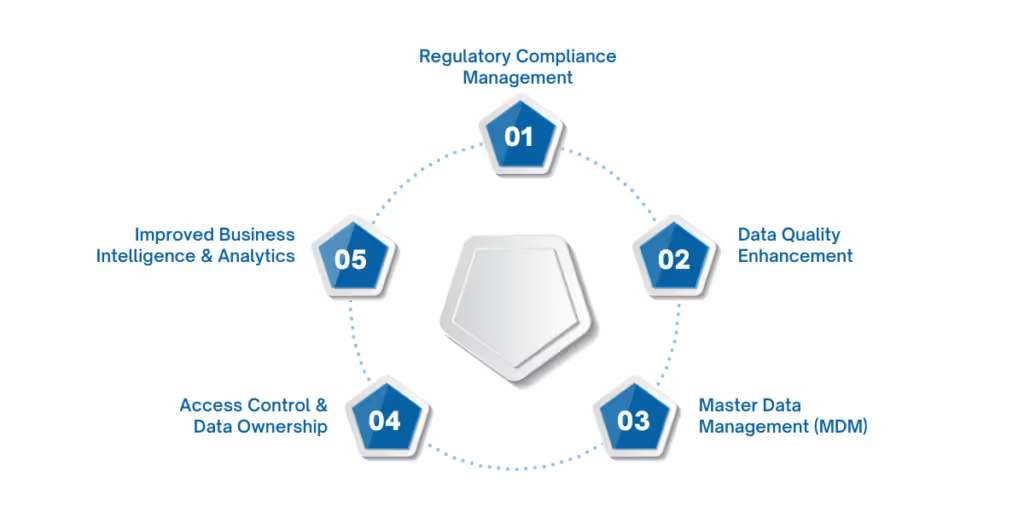
Data governance helps organizations manage their data assets effectively, leading to improved decision-making and regulatory adherence. Here are some of its use cases:
- Regulatory Compliance Management: Organizations in finance, healthcare, and other regulated industries use data governance to comply with laws such as GDPR, HIPAA, and CCPA, ensuring proper data handling and avoiding legal penalties.
- Data Quality Enhancement: Enterprises implement governance frameworks to maintain accurate, consistent, and reliable data, reducing errors in business operations and analytics.
- Master Data Management (MDM): Businesses consolidate and standardize data across departments, ensuring a single source of truth for customers, suppliers, and products.
- Access Control and Data Ownership: Organizations define clear roles and responsibilities for data access, ensuring that only authorized personnel can modify or use sensitive data.
- Improved Business Intelligence and Analytics: Companies enforce data governance policies to ensure high-quality data for AI and analytics, leading to better forecasting and strategic decision-making.
Now, we will explore use cases of data security and its role in protecting sensitive information.
Use Cases of Data Security
Organizations implement data security measures to ensure data confidentiality, integrity, and availability. Here are some of its use cases:
- Preventing Cyberattacks and Data Breaches: Companies deploy firewalls, intrusion detection systems (IDS), and encryption to safeguard sensitive data from cyber threats such as ransomware and phishing attacks.
- Securing Cloud Data Storage: Businesses use multi-factor authentication (MFA), encryption, and zero-trust security models to protect cloud-stored data from unauthorized access.
- Protecting Financial Transactions: Banks and payment processors implement secure encryption protocols and fraud detection systems to prevent financial fraud and unauthorized transactions.
- Ensuring Secure Remote Work: Organizations enforce VPNs, endpoint security, and access controls to protect corporate data when employees work remotely.
- Maintaining Compliance with Data Privacy Laws: Companies adopt data masking and anonymization techniques to ensure compliance with GDPR, HIPAA, and PCI DSS regulations.
Looking ahead, the future of data governance and security will continue to evolve with emerging technologies and regulatory advancements. We should have a look at what the future of data governance and security holds for us!
The Future of Data Governance and Security
The future of data governance and security is marked by significant trends and challenges, driven by technological advancements, regulatory pressures, and the increasing importance of data integrity. Here are some key points:
Stricter Global Regulations: Governments worldwide are tightening data privacy laws, such as the evolving GDPR standards and new U.S. state-level data protection laws, making compliance a top priority.
Zero-Trust Security Models: Organizations will shift toward zero-trust architectures, ensuring strict verification at every access point to minimize security risks.
Quantum-Resistant Encryption: With advancements in quantum computing, businesses will need to adopt post-quantum cryptographic techniques to future-proof their security frameworks.
Blockchain for Data Integrity: Blockchain technology will play a role in securing and verifying data transactions, providing an immutable record to prevent tampering.
The future of data governance and security will be dynamic, requiring businesses to embrace innovation while ensuring robust compliance and protection measures. You should definitely proactively adapt this to maintain a competitive edge in an increasingly data-driven world.
Conclusion
Integrating data governance and security is essential for maintaining data integrity, compliance, and protection in an increasingly digital world. A well-structured governance framework ensures data accuracy and accessibility, while robust security measures safeguard it from cyber threats.
Organizations must adopt comprehensive strategies that align governance policies with advanced security technologies to mitigate risks effectively. As regulatory landscapes evolve and cyber threats grow more sophisticated, businesses must remain proactive in securing their data assets.
Here at WaferWire, we believe that in a data-driven landscape, the integrity and security of your data are paramount. Our Data Governance & Compliance services empower you to effectively manage your data assets, ensuring compliance with industry regulations while minimizing the risks of breaches and inaccuracies. Contact us today to establish a robust governance framework that secures your data.
Subscribe to Our Newsletter
Get instant updates in your email without missing any news
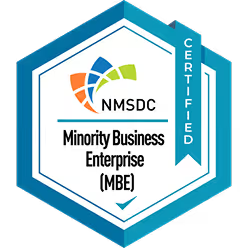
Copyright © 2025 WaferWire Cloud Technologies




.png)








